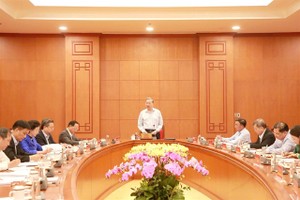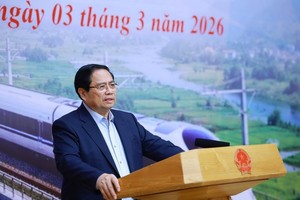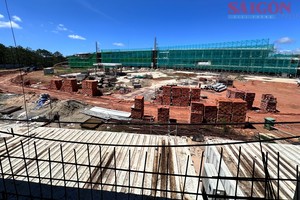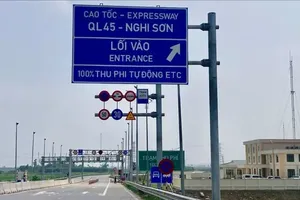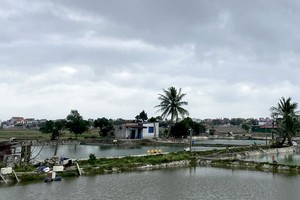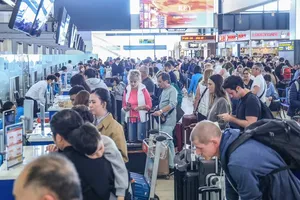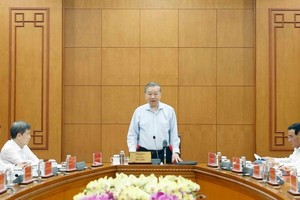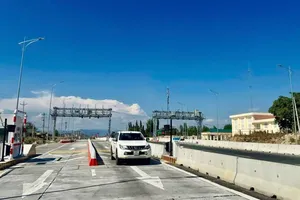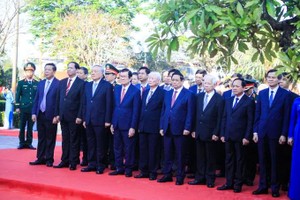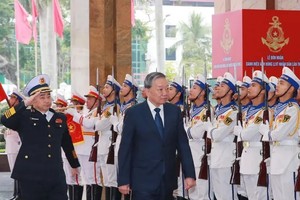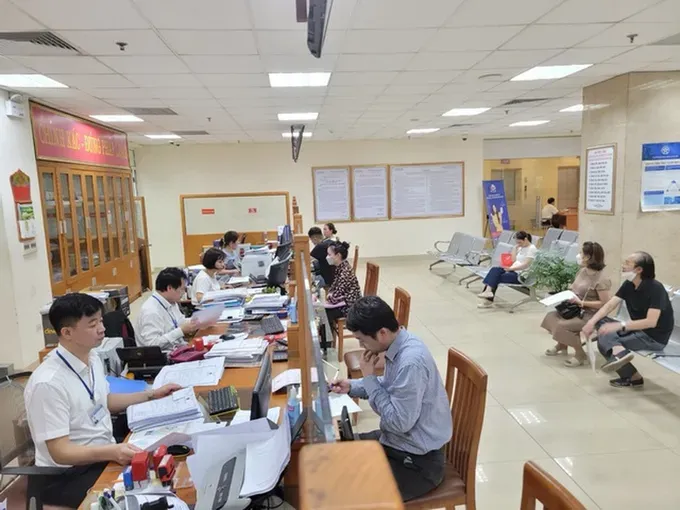
Seeing it through to completion
It’s nearly 6:00 p.m., but the headquarters of the Hoa Hung Ward People’s Committee in HCMC is still aglow with lights. Inside, the sounds of keyboards tapping and papers rustling fill the air.
Civil servants remain diligently focused on their screens, processing files to meet deadlines. In a nearby conference room, the Ward’s Party Standing Committee is deep in discussion, hashing out how the new apparatus can better serve its citizens. The city lights have long been on by the time their meeting concludes.
For Hoa Hung Ward People's Committee Chairwoman Le Thi Ngoc Hien, the new local government model means her phone is public and open 24/7. Focused on efficiency, her team processed over 1,300 files on or ahead of schedule in just 17 days since the launch. This dedication shines in urgent moments. In less than three weeks, her ward handled 17 death certificates, 11 of which came in over a weekend, often processing and delivering documents to grieving families within minutes of a direct call.
The effectiveness of this new approach is becoming undeniable. Citizens have begun withdrawing formal requests for meetings because their issues have already been solved. All feedback logged through the city’s 1022 portal is handled promptly.
On HCMC’s map of institutional performance, Hoa Hung Ward currently ranks second. It’s no accident that ward leaders now frequently receive calls from residents – some to offer congratulations, others to give heartfelt advice – because they know they will be heard and receive a response.
“Pressure? Yes, there’s pressure”, Chairwoman Le Thi Ngoc Hien shared. “But we understand that what people expect after this streamlining isn’t about who does the work, but whether the work gets done right and seen through to the end.”
“Extended bridge” between government and citizens
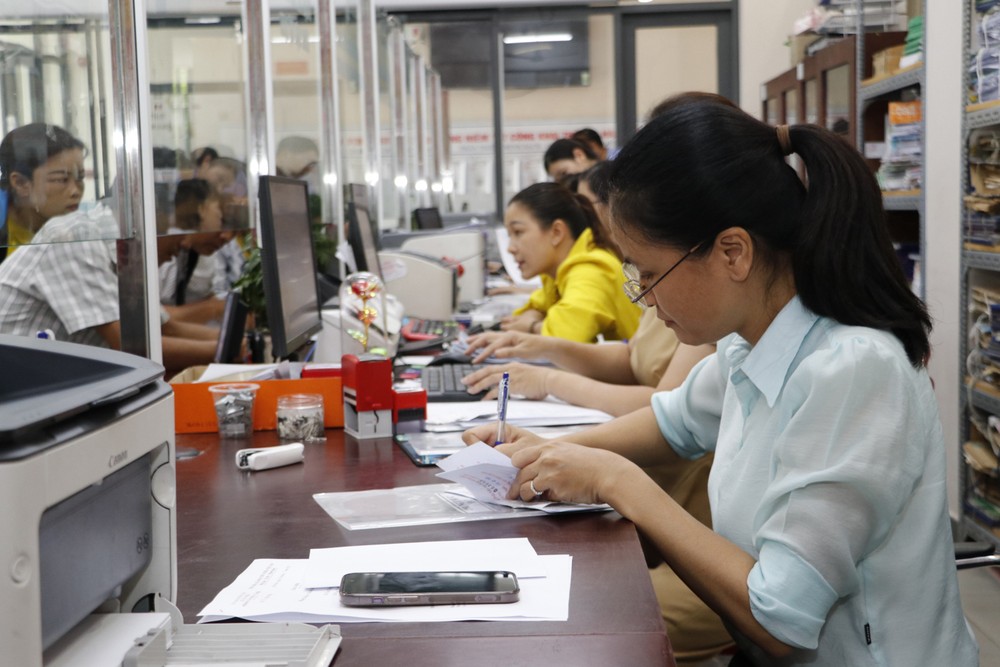
From day one of the new two-tier model, HCMC’s leadership has championed the idea that public service culture cannot be just a slogan. It must become a form of “soft power”, an “extended bridge” connecting the government and its people. In this new culture, discipline, a service mindset, and respect for citizens are the ultimate measures of the apparatus's credibility and competence.
This new service culture is visible on the ground. At the bustling Tang Nhon Phu Ward Public Administration Service Center, resident Nguyen Anh Huy worried about the long queue at the Justice and Civil Status counter. Seeing the overload, Tran Vuong Vu, an official from the Economics counter, immediately stepped in to help, and Mr. Huy was served quickly. Vu explained that staff now proactively learn different procedures so they can “pitch in” and assist overloaded colleagues, ensuring citizens don’t have a long wait.
The Center’s Director Phan Ngoc Tan noted they serve over 300 residents daily. To manage the load, they’ve cross-trained staff so they can flexibly “share the workload” and support each other during peak times.
The challenge is even greater in Ba Diem Commune, which, with a population of over 192,000, is one of HCMC’s largest. Its Public Administration Service Center handles around 350 files a day. Here, it is easy to see the “all hands on deck” approach in action.
While one civil servant, Tran Thi Thu Hoa, processes a relentless stream of certification requests, a Vice Chairperson of the commune sits right beside her, signing documents on the spot for immediate return. When the queue gets too long, staff from other counters jump in to assist. Despite a workload that has tripled, the team’s experience and thorough training ensure that service never falters.
Glue that binds different teams
According to Director Phan Ngoc Tan, this collaborative spirit is actively nurtured. Every two days, the ward’s leadership spends the last 10 minutes of the day just listening to staff feedback. Individuals and teams with outstanding performance are promptly recognized and rewarded. At the end of each afternoon, a quick debriefing allows everyone to raise issues and find immediate solutions.
In Hai Chau Ward of Da Nang City, the same spirit of service is palpable. Formed from a merger of five central wards, Hai Chau Ward now serves over 131,000 residents, and its administrative caseload has multiplied. The ward proactively doubled its service counters from 7 to 14 and stationed staff to guide residents through online forms, ensuring everything is correct from the start.
“We all lend a hand”, said Le Minh Tuan, an official who handles construction permits. “When you see a colleague is swamped, you automatically step in to share the load.” This teamwork, he added, is bolstered by leaders who regularly show their appreciation.
On July 1, the very first day of the new system, Ward Party Secretary Cao Thi Huyen Tran visited every staff member personally. “If each of us stands firm before this new workload”, she told them, “then our ward government will stand firm with us.”
Beyond normal hours, the ward has launched a “Volunteer Saturday” program and a “Work an Extra 30 Minutes” movement to keep up. “We are determined that no citizen will be negatively affected, even with a 3-4 fold increase in files”, affirmed Ward Chairman Nguyen Van Duy.
For the ward’s Party Secretary Cao Thi Huyen Tran, these first days are not just about launching a new apparatus, but about building public trust through concrete action. “In this new era of digital transformation”, she noted, “every official must enhance their ability to analyze and react to policy in real-time.”
Culture of public communication
When performing public duties, officials and civil servants must:
- Wear their official badge, insignia, or ID card; maintain a courteous demeanor; and uphold the prestige of their agency and colleagues.
- Respect, listen to, and be close to the People; be professional and modest; use standard, clear, and coherent language.
- Strictly refrain from arrogant or authoritarian behavior, irresponsibility, or causing difficulty and harassment for citizens and businesses while performing public duties.
(Article 13, Law on Cadres and Civil Servants 2025)
